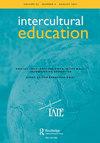One size doesn’t fit all educational assessment in a multicultural and intercultural world
IF 0.8
Q3 EDUCATION & EDUCATIONAL RESEARCH
引用次数: 0
Abstract
ABSTRACT A pronounced development of the 21st century is the technological revolution, which is leading to a global world that creates more multicultural, intercultural, and diverse communities. These developments influence our lives in various ways, one of which relates to education. Educational systems are facing complicated challenges, as they need to align education to the postmodern era while adjusting pedagogical concepts and methods to the multicultural diversity of learners. The article aims to explore these challenges, specifically addressing multicultural educational assessment. We question the prevalent concept of assessment - assessment of learning, vs. assessment for learning or assessment as learning. The former uses assessment as a measurement tool, aiming to benefit decision-making, accountability, control, and supervision, and stems from economic and political considerations. This assessment does not consider the developments of recent decades, which have created a more global, multicultural world where the assumption that ‘one size fits all’ does not work. Furthermore, when this wrong assumption comes to students’ assessment it can have devastating consequences for individuals and groups. We discuss the need to change the educational assessment paradigm, adapt it to a multicultural world, the challenges of doing so, and potential ways to cope with these challenges.在一个多元文化和跨文化的世界里,单一的规模并不适合所有的教育评估
摘要21世纪的一个显著发展是技术革命,它正在引领一个全球性的世界,创造更多的多元文化、跨文化和多样化的社区。这些发展以各种方式影响着我们的生活,其中之一与教育有关。教育系统正面临着复杂的挑战,因为它们需要将教育与后现代时代相结合,同时调整教学理念和方法以适应学习者的多元文化多样性。本文旨在探讨这些挑战,特别是针对多元文化教育评估。我们质疑评估的普遍概念——对学习的评估,而不是对学习的评价或作为学习的评估。前者将评估作为一种衡量工具,旨在有利于决策、问责、控制和监督,并源于经济和政治考虑。这项评估没有考虑近几十年的发展,近几十年来,世界变得更加全球化、多元文化,“一刀切”的假设是行不通的。此外,当这种错误的假设出现在学生的评估中时,可能会对个人和群体产生毁灭性的后果。我们讨论了改变教育评估模式的必要性,使其适应多元文化世界,这样做的挑战,以及应对这些挑战的潜在方法。
本文章由计算机程序翻译,如有差异,请以英文原文为准。
求助全文
约1分钟内获得全文
求助全文
来源期刊

Intercultural Education
EDUCATION & EDUCATIONAL RESEARCH-
CiteScore
2.30
自引率
8.30%
发文量
36
期刊介绍:
Intercultural Education is a global forum for the analysis of issues dealing with education in plural societies. It provides educational professionals with the knowledge and information that can assist them in contributing to the critical analysis and the implementation of intercultural education. Topics covered include: terminological issues, education and multicultural society today, intercultural communication, human rights and anti-racist education, pluralism and diversity in a democratic frame work, pluralism in post-communist and in post-colonial countries, migration and indigenous minority issues, refugee issues, language policy issues, curriculum and classroom organisation, and school development.
 求助内容:
求助内容: 应助结果提醒方式:
应助结果提醒方式:


